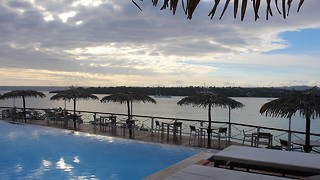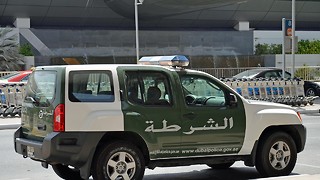Protesters forced out despite support of dons
Law Faculty occupation ‘starved out’ after University threatens legal action
Student protesters ended their six-day occupation of the Law Faculty yesterday, claiming they had been “starved out” by the University and following a threat of legal action against them. The group issued a statement saying: “We did not fail. We were failed by the University.”
The University is facing accusations of “bullying” and “failed leadership” from academic staff and students over its handling of the Gaza protest. It “categorically denies” both bullying and underhand tactics.
The accusations came after Registrary Jonathan Nicholls issued a second ultimatum carrying the threat of legal action and refusing protesters the right to return to the building. Existing stocks of food were disposed of by University officials, who recorded protesters’ names and photographed them. The University said last night that students would not be punished, even though their actions were in breach of matriculation requirements.
English don Chris Warnes called the University’s response “a failure of leadership” and “a disgrace”. He attacked “the cheapness and the way they bullied those students”. Former UK Ambassador to Uzbekistan Craig Murray, who was refused access to the building to address the protesters one Tuesday evening, said: “I was quite astonished to learn that Cambridge University had responded by attempting to starve the students out.”
We did not fail. We were failed by the University
Andrew Chitty, a lecturer at the University of Sussex, has written to Vice-Chancellor Alison Richard to express his “dismay” at the University’s “heavy-handed methods”. Equivalent protests at Sussex ended amicably after an agreement was reached over their occupation’s demands. Dr Chitty told Prof. Richard that Cambridge’s response brought the University into “disrepute”.
The protest has found support within the academic community in Cambridge. 35 Cambridge academics have expressed sympathy with the protest and its demands, including prominent poet J.H. Prynne, Raymond Geuss, Robert Macfarlane and Priyamvada Gopal.
An open letter to the Vice-Chancellor signed by 29 academics concludes: “We do not believe there is a substantial conflict of interest between the University, its staff and the students on these matters. These students are showing motivation, drive, commitment, perseverance, and principle in abundance – exactly the qualities we as teachers value most in our students. We would thus urge you and your negotiating team to respond sympathetically to the student proposals.”
In his message of support to the demonstration, J.H. Prynne stressed the importance of British engagement with the Israeli-Palestinian conflict.“There are other crisis spots right now, too, but this one points a finger at us because we have done nothing real, for so long,” he wrote. “Whichever way you look, it is just shameful. Intelligent human communities have an especial duty to look for understanding and to make it work, not to sit pat on our useless hands.”
But academic opinion has been far from unanimous on the issue. No equivalent condemnation of the demonstration has been issued, but Matthew Kramer, Professor of Legal and Political Philosophy, called the protest “a puerile act of collective masturbation in which the object is not really to improve any situation”.
Mathematician Geoffrey Grimmett said “the University is a place of education and research, not politics. The act of occupation runs counter to the very qualities of Cambridge that attracted us here.”
Though the University refused to accede to any of the occupation’s six demands, its negotiators have indicated their willingness to endorse a statement made by Universities UK condemning the destruction of academic institutions in Gaza, and to notify faculties and Colleges of existing opportunities for humanitarian fundraising.
By Elliot Ross
 News / Academics lead campaign against Lord Browne Chancellor bid2 July 2025
News / Academics lead campaign against Lord Browne Chancellor bid2 July 2025 News / Clare students call on College to divest3 July 2025
News / Clare students call on College to divest3 July 2025 Lifestyle / It’s pretty fun to talk to strangers3 July 2025
Lifestyle / It’s pretty fun to talk to strangers3 July 2025 Science / It’s only rocket science, Elon3 July 2025
Science / It’s only rocket science, Elon3 July 2025 News / Join Varsity‘s editorial team this Michaelmas23 June 2025
News / Join Varsity‘s editorial team this Michaelmas23 June 2025









